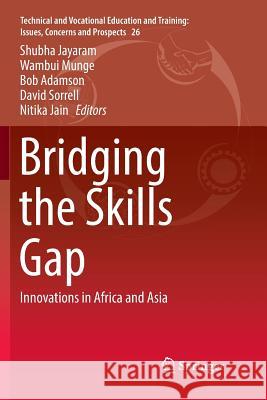Bridging the Skills Gap: Innovations in Africa and Asia » książka
topmenu
Bridging the Skills Gap: Innovations in Africa and Asia
ISBN-13: 9783319841717 / Angielski / Miękka / 2018 / 148 str.
Kategorie:
Kategorie BISAC:
Wydawca:
Springer
Seria wydawnicza:
Język:
Angielski
ISBN-13:
9783319841717
Rok wydania:
2018
Wydanie:
Softcover Repri
Ilość stron:
148
Waga:
0.25 kg
Wymiary:
23.39 x 15.6 x 0.97
Oprawa:
Miękka
Wolumenów:
01











